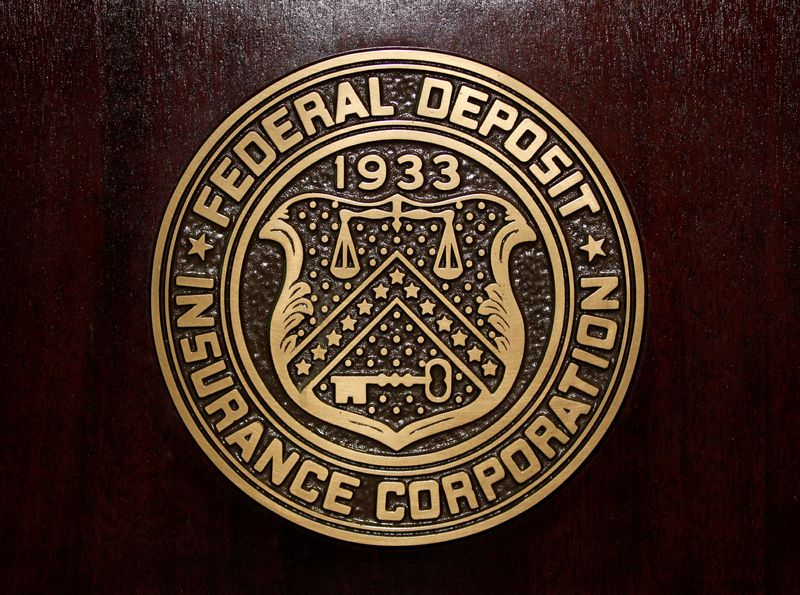By Hannah Lang
(Reuters) -A top U.S. banking regulator on Tuesday proposed that banks bolster recordkeeping requirements for accounts held by fintech companies on behalf of their customers, following the collapse of bank-fintech middleman Synapse Financial Technologies earlier this year that led to the freezing of thousands of accounts.
Taken together, the new requirements would ensure that consumers have timely access to their funds, even in the absence of a bank's failure, the Federal Deposit Insurance Corp said.
The FDIC also finalized updated bank merger guidance, and separately, the U.S. Justice Department announced it would be withdrawing from its 1995 bank-specific merger guidelines in favor of its broad merger guidelines finalized late last year.
Under the FDIC's proposal to strengthen recordkeeping, banks that work with fintech companies would need to identify the beneficial owners of each account and its balance. Third parties -- like Synapse -- would be allowed to maintain those records as long as certain requirements are met, such as a bank retaining unrestricted access to that data even in the event of a middleman's bankruptcy or insolvency.
Synapse filed for bankruptcy in April, leading to the freezing of accounts for customers of its partner banks, including Tennessee-based Evolve Bank & Trust, which in turn worked with fintech companies to offer banking services like deposit accounts.
It is still unclear how many people had accounts frozen as a result of Synapse's bankruptcy, but regulators have estimated that it could be as high as tens of thousands. A court-appointed trustee in the bankruptcy case claimed in June that there is an $85 million shortfall between Synapse's partner banks and what depositors are owed.
The FDIC on Tuesday also finalized a policy that would bring heightened scrutiny to bank mergers that would result in a combined bank with more than $100 billion in assets. The final rule is generally similar to the FDIC's March proposal.
The new rule would update the agency's merger guidance for the first time in 16 years, and would put special emphasis on maintaining the stability of the banking sector, agency officials said when first proposing the rule in March.
Bank mergers and industry consolidation have come under intense scrutiny since last year, when three of the largest-ever U.S. bank failures resulted in acquisitions and billions in losses for the FDIC's insurance fund.

In a separate announcement, the Justice Department said that its merger guidelines with the Federal Trade Commission that were finalized last year would be its sole framework across all industries, including the banking sector.
Both moves come as regulators have been ramping up scrutiny of bank mergers under Democratic President Joe Biden's administration. Biden issued an executive order in 2021 aimed at promoting competition, which pushed the Federal Reserve and Justice Department to update merger guidelines.